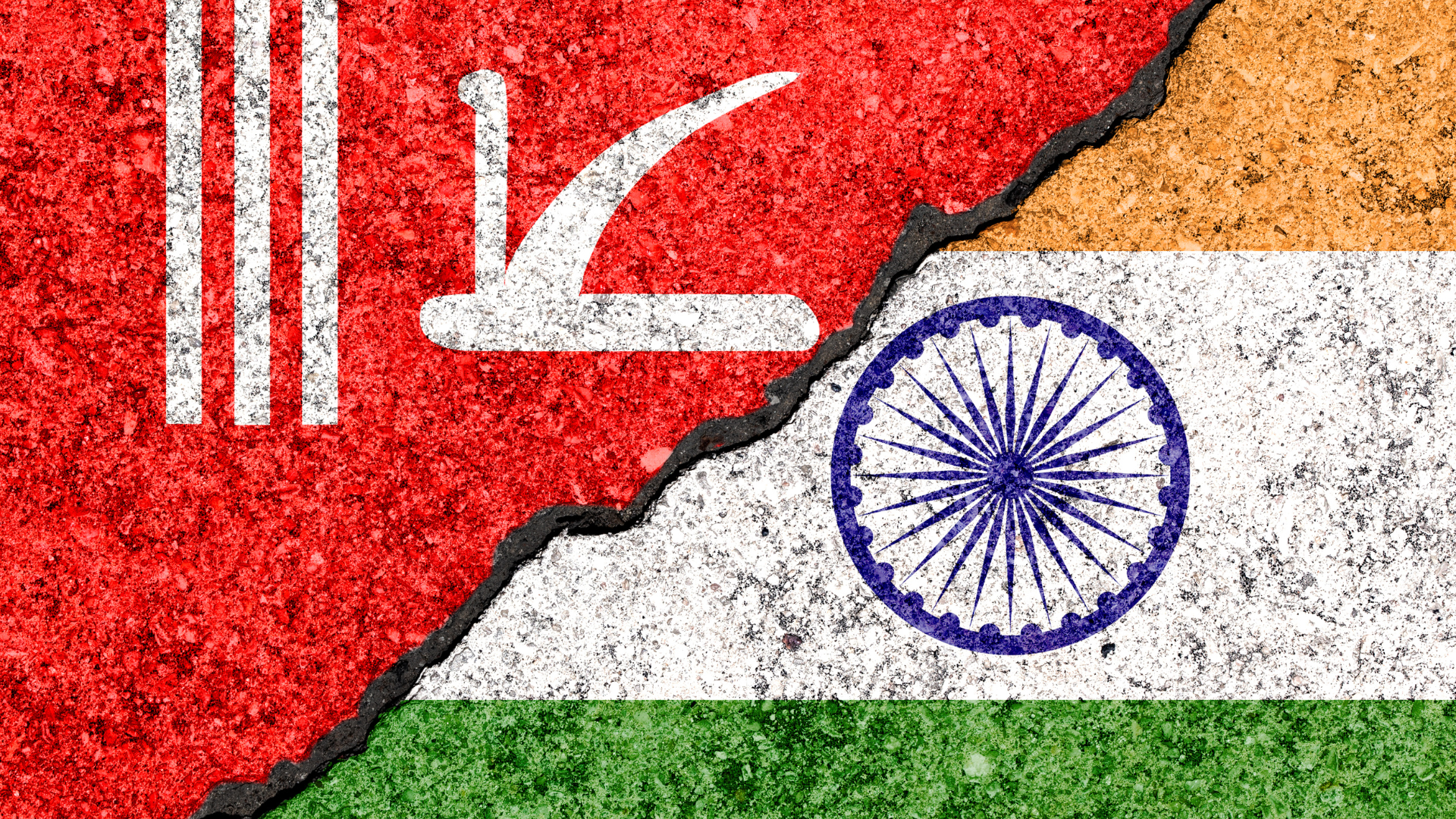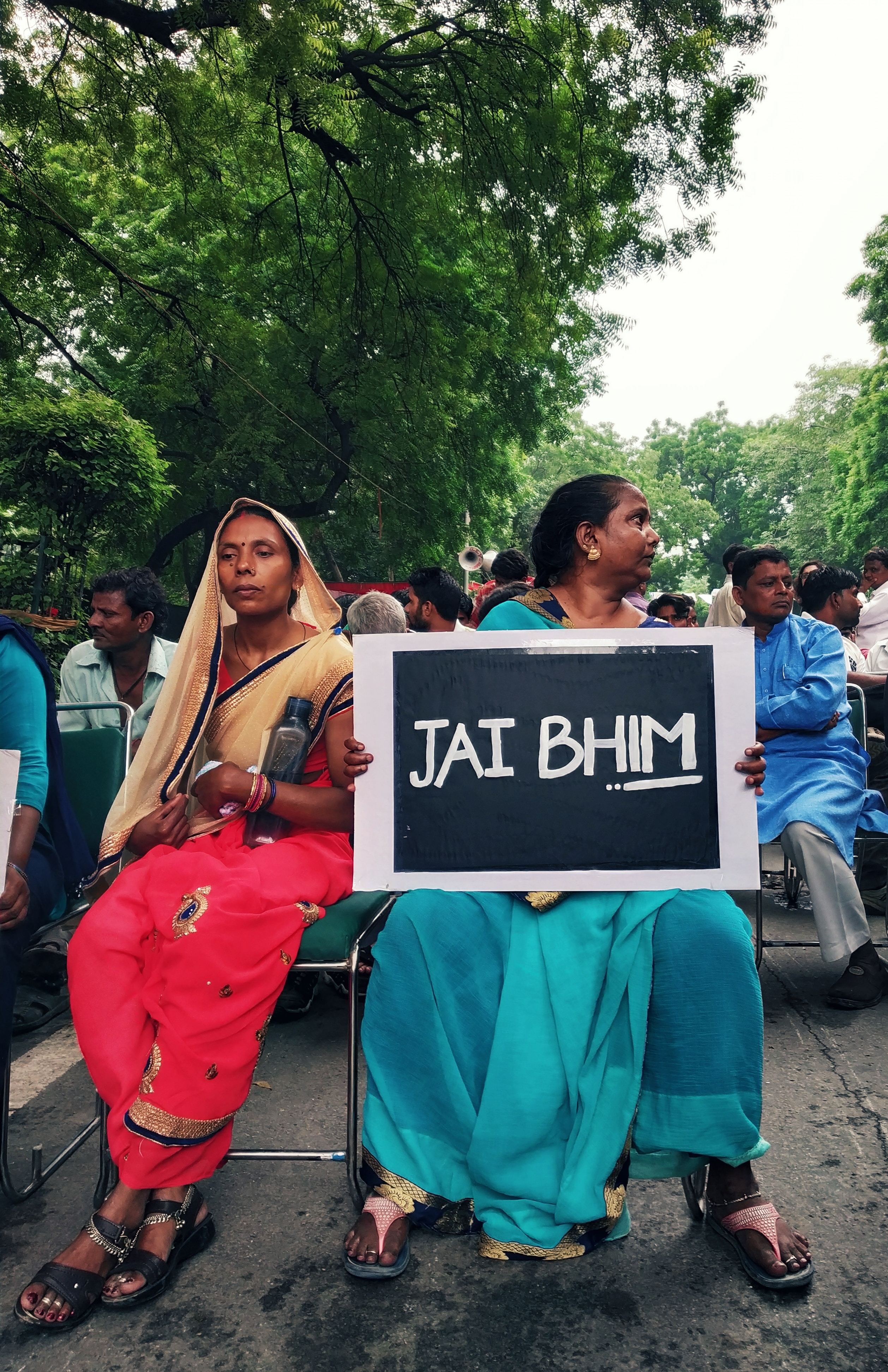Introduction: Are Human Rights Universal?
The concept of human rights predates the current system, which was established in 1945 with the creation of the United Nations (Mende, 2019). “Universal human rights theory holds that human rights apply to everyone simply by virtue of their being human” (Nasr, 2016), but cultural relativism maintains that these rights are neo-imperialistic. “They originated in the West, reflect Western interests and are, therefore…a new form of imperialism” (Shaheed & Richter, 2018). For the sake of this essay, I will answer ‘Are human rights universal?’ through a simple yes/no dichotomy. If one takes the perspective that, whilst human rights principles cannot be applicable to all state behaviour, the general idea of justice transcends cultural boundaries and is not solely confined to Western society (Sundaramoorthy, 2016), then we can take human rights as “standards that recognise and protect the dignity of all human beings” (UNICEF, 2015). Any culturally relativistic narrative, one could argue, thus rejects how injustices are familiar to all cultures, and it is this collective experience which constitutes an authoritative foundation on which to define ‘human rights’ (Shaheed & Richter, 2018).
But post-colonialist readings transcend the mere definition of human rights. As Barbra Heron (2007) indicates, post-colonialism is an appropriate framework for this study because it traces the ‘colonial continuities’ of contemporary movements, namely ‘human rights’. If we believe that human rights are more than a Western abstraction, they should have a universal application, that is indivisible and inclusive. Critical accounts, however, point to a propensity to overemphasise human rights abuses in the Global South and construct a non-Western ‘other’ that requires saving by Western states (Mende, 2019). I will examine British colonialism’s contemporary consequences on the human rights of marginalised communities (including women and LGBTQ+ people), arguing that a tendency to impose imperial laws, cultures and norms on colonised nations has created generations with oppressed rights (Conklin, 1998).
Women’s Rights and Decolonising Western Feminism
After the British Monarchy colonised India in 1858, an ambition to ‘civilise the barbaric natives’ motivated many legal and social reforms. Post-colonial feminists have insisted that an emphasis on the interests of colonial rulers, native elite males and British women only frustrated the interests of Indian women, who are still arguably oppressed two-fold, first by imperialist legacies and second by patriarchal norms. Many scholars have deemed this ‘civilising’ mission as a way of emasculating Indian men by claiming that they were incapable of caring for their own women, and this struggle for political dominance was being waged on the backs of Indian women (Wright & Chitnis, 2007). With Victorian notions of womanhood (including chastity, innocence and passiveness) came patriarchal and protectionist policies, persisting in modern society. While possible to make the compelling case that Western enlightenment contributed to the abolishment of child marriages, sati, purdah and other patriarchal customs including prohibition of the remarriage of widows, this colonial saviourism still permeates contemporary ‘human rights’ thinking, stifling the rights of previously colonised people. “The British had set themselves the noble task of reforming the barbaric Indian male, a fictional character that they had, in large part, created” (Wash & Lee, 2007). But British imperialists were not all men. According to Antoinette Burton, middle-class British feminists referred to Indian women as “a helpless, degraded victim of religious custom and uncivilised cultural practises” (2000) who were in need of imperial saviours’ intervention.
The feminist movement needs to be decolonised in order for women in the Global South to achieve the ‘human rights’ that Western women enjoy. During colonial times, “it was the ‘White Man’s Burden‘ to protect Indian women from ‘uncivilised and barbaric practices‘, and Indian men wanted to protect their women from foreigners” (Bhattar, 2022). Women have been seen as “unresisting, inert and passive objects” (Bhattar, 2022) for generations as a result of these historical struggles, and this thinking has modern consequences, with the first waves of feminism monopolised by white women in the West, excluding the ‘submissive, uneducated’ women of colour from the East. Saris were traditionally worn bare beneath due to India’s hot humid climate. However, the British (viewing Indians through an oriental lens) considered this indecent and introduced blouses. While the blouse liberated white women from corsets in Europe, it also forced its standard of public decorum on and institutionally sexualised Indian women. When considered alongside neo-liberal ‘white feminism’, with liberation attitudes leading numerous hijab and burqa bans across Europe, we can see that colonialism has contributed to an inherently oppressive structure of ‘saving’ women of colour by imposing Western attitudes on them (Ezaydi & Chalabi, 2021). As Cole (2012) finds, “the white saviour complex is not about justice” but “validat[ing] privilege.” In order for women in formerly colonised nations to protect their human rights, we must promote the intersectional feminism of Crenshaw that rejects saviourism, respects cultural difference, and moves towards true solidarity. The White Saviour Complex is a “colonial continuity” which has survived the demise of colonialism and is restated in human rights activism, particularly women’s rights.
LGBTQ+ Rights and the Legacy of Homophobic Legislation
According to Human Rights Watch, “more than half of the world’s remaining ‘sodomy’ laws criminalising consensual homosexual conduct are relics of British colonial rule” (Whitehead, 2017). Before British colonisation, homosexuality was not illegal in India – up until September 2018, it was illegal under Section 377 of the Indian Penal Code. This was part of the British reform mission, superimposing Victorian ideas of sexual morality on India. Section 377 served as a political tool to reassert colonial authority after the Indian Rebellion of 1857, especially over ‘deviant’ groups within society (Reddy, 2010). “While the hijras have been part of South Asia for thousands of years, their identity stood at odds with Western morality and conception of gender” (Hunter, 2019), and the intolerance of the state and society towards transgender people has persisted to this day. Transgender discrimination ranges from impediments in accessing education, employment and healthcare, to harassment, arbitrary arrests and sexual violence (Banerjie, 2018). Evidence of a culture accepting of sexual fluidity dates back to the ancient Sanskrit texts of 8th BCE and the Mughal erotic canon in 17th CE (Benton, 2002). According to Foucault, “bodies are controlled through discipline over centuries, by repressing…sexuality” (Young, 1995), seen in the body policing imposed by colonial rule, which pathologized non-heteronormative behaviours. We must also recognise that colonial legacies are not simply undone by reversing these laws. Despite Hindus embracing diverse gender and sexual identities as far back as the Vedic period (around 4000 BC), sexual and gender minorities in India face constant discrimination. In ‘Orientalism’, Said examines how the West constructed ideas about the East as inferior to create these power relations which still disempower previously colonised populations today. Just as they created societal conventions of Indian women as meek and unassuming, to justify imperial interventions, they imposed Western, Judeo-Christian sexual norms on India’s fluid gender and sexual conventions. Most ironic, perhaps, is that twenty years after granting India independence, Section 377 was overturned in Britain, a move that was applauded by human rights activists despite its criminalising of homosexuality in 42 former colonies.
Enze Han, author of “British Colonialism and the Criminalization of Homosexuality,” said that the British “had this conception that the ‘Orient’, the non-Western subjects, were overly erotic” (2018), the same Victorian morality that contributed to the subjugation of Indian women. The conservative attitudes of former colonies are illustrative of the long-term effects of British prohibitions on local opinions, including opinions on gay sex which have contributed to a rise in hate crime in the Global South. Indian LGBT activist, Jyoti, argued that same-sex communities loathed the law because it was “alien” and had not “organically developed in [Indian] society” (Westcott, 2018) but was imposed by colonial powers, inviting discrimination, harassment and assault that harmed the human rights of gay Indians. But others argue that homophobia predates the British empire, with Robert Meyers saying “Saudi Arabia, Iran and Ethiopia were never colonised, and are virulently homophobic countries” (Hinton, 2022). More striking is how political leaders (including India’s ‘Hindutva’ government) have, in recent decades, “defended those laws as citadels of cultural authenticity, with homosexuality coming from the colonizing West” (Human Rights Watch, 2008), despite the fact that the West brought in the first laws enabling governments to forbid and repress it. A stronger perspective, therefore, is that homophobia and sexism are primitive systems that were not created by colonialism but rather exacerbated by it. This has wide-reaching consequences on the ability of these groups to fight for their human rights, manipulating societal norms, laws, and conventions.
Rising Economic Inequality and India’s Rural Poor
Unemployment, famine, poor sanitary conditions, lack of access to education and healthcare, caste-based oppression, religious violence and gender-based violence are all a part of the legacy of colonialism. In 40 years, between 1880 and 1920, British colonialism killed 100 million Indians and, according to research by economic historian, Robert Allen, extreme poverty in India increased under British rule, from 23% in 1810 to more than 50% in the mid-20th century. Allen and other scholars argue that prior to colonialism, Indian living standards may have been “on a par with the developing parts of Western Europe” (Sullivan, 2022). British colonial policies facilitated the exploitation of India’s wealth and resources, which resulted in widening socioeconomic disparities. The economic inequality in India today can be traced back to the colonial period, “affecting access to basic services, education, and healthcare, and impeding the realization of economic and social rights” (Oxfam, 2022). Gaps have widened between the propertied and the property-less, with British India’s institutional and commercial policy making the rich Indians richer and the poor poorer, something that has persisted to this day.
This is especially true for India’s rural poor, whose human rights are increasingly vulnerable. The introduction of the Zamindari system, where “peasants were often forced to pay exorbitant rents and taxes to zamindars” (Balaji, 2023), often led to oppressive practises and increased poverty among peasants, with an emphasis on cash crops and commercial agriculture causing populations today to be susceptible to rural shocks as well as exacerbating contemporary cycles of poverty and debt. Deindustrialisation and an emphasis on British manufactured goods contributed to this unemployment and poverty. India’s rural poor “are vulnerable…marginalized, voiceless, and victim of multiple social circumstances” (Bhadra, 2021). Today, the top 10% of the Indian population holds 77% of the total national wealth, making it one of the most unequal countries in the world, with economic inequality adding to a society that is “already fractured along the lines of caste, religion, region and gender” (Himanshu, 2018). This increases laborers’ risk of falling victims to poverty traps, stifling their basic human right to liveable wages, safe working conditions, and basic services. However, research by economic historian, Roy, found inconclusive evidence for this claim, stating that the fortunes of the propertied class actually fell (Kwatra, 2018). Nevertheless, one cannot deny that colonial societies entailed huge inequalities in political agency, as well as in social and economic opportunities, if only along the racial divide between European and autochthonous populations.
The Right to Self-Determination in Jammu and Kashmir
Arguably one of the gravest forms of human rights violation is the deprivation of a people’s right to self-determination (to freely choose their sovereignty), as it affects a whole nation. In 1960, the General Assembly of the United Nations adopted the Declaration on the Granting of Independence to Colonial Countries and Peoples, which proclaimed that all people had a right to self-determination. This specifically emphasised the connection between the right to self-determination and peoples of colonised territories, as both self-determination and the existence of colonial continuities cannot be mutually inclusive. Jammu and Kashmir, the land between India and Pakistan, has been subject to dispute since the partition of 1947, where British viceroy, Lord Mountbatten, stated that a referendum would take place to decide where Kashmir should accede to; this referendum never took place. A UN plebiscite in 1948 left out the right of Kashmiris to become an autonomous state and numerous human rights violations have taken place in the region, including over 100,000 people dead, 3,400 people missing, sexual violence and armed insurgency. Third World advocates, like Georges Abi-Saab, tend to see the right to self-determination as the most fundamental right and “a prerequisite for individual minority rights” (Abdullah, 2006). According to the uti possidetis principle, colonial borders ‘freeze’ at the time of independence, in the absence of a treaty. While convenient for colonising powers to acquit themselves and grant independence quickly, this has created political instability and bloody conflict in previously colonised nations. In Kashmir, it has also given rise to a new type of colonialism – settler-colonialism – with the new Domicile Order granting half a million non-Kashmiris residency status, with the aim of fostering a new Kashmiri identity through displacement and exploitation. Colonialism has thus given rise to new human rights violations, sparking new rivalries for power and upholding oppressive social structures.
Conclusion: Everything is Connected to Colonial Heritage
It is obvious that colonialism – specifically, the British Empire – has had severe consequences for contemporary human rights. Given the fact that there are, with a few exceptions, no colonies left in the world, one might question why a colonial context is even relevant. However, “the laws, economic structures and cultural basis for European colonialism didn’t disappear when nations gained independence in the mid-20th century” (Ross, 2019). Decolonisation is the complete rejection of the outdated idea that “civilized Europeans” were entitled to dominate the “uncivilized”. The effects of colonialism not only still exist but are as grave as ever, not only in the case of self-determination and territorial integrity, but looking at a nation’s wealth and resources, and the economic, social and cultural human rights of its people. Everything (poverty, human rights violations, ethnic conflicts and minority issues) is connected to colonial heritage and, thus, a postcolonial resistance is taking place. Great injustices happen when people grow accustomed to them; decolonisation is changing this.
Bibliography
Abdullah, M. (2006). THE RIGHT TO SELF-DETERMINATION IN INTERNATIONAL LAW.
Alvaredo, F., Cogneau, D. and Piketty, T. (2021). Income inequality under colonial rule. Evidence from French Algeria, Cameroon, Tunisia, and Vietnam and comparisons with British colonies 1920–1960. Journal of Development Economics, [online] 152, p.102680. doi:https://doi.org/10.1016/j.jdeveco.2021.102680.
Balaji (2023). Zamindari System- Introduced By, Abolition, In Mughal Period. [online] BYJU’S Exam Prep. Available at: https://byjusexamprep.com/upsc-exam/zamindari-system-in-india [Accessed 31 May 2023].
Banerjie, A. (2018). Trans*forming the Constitution. [online] Himal Southasian. Available at: https://www.himalmag.com/transforming-the-constitution-transgender-persons-protection-rights-bill/ [Accessed 31 May 2023].
Bhadra, S. (2021). Vulnerabilities of the Rural Poor in India during pandemic COVID‐19: Social Work perspective for designing sustainable emergency response. Asian Social Work and Policy Review. doi:https://doi.org/10.1111/aswp.12236.
Bhattar, N. (2022). Women In Colonised And Partitioned India: Resistance In Everyday Life. [online] Feminism in India. Available at: https://feminisminindia.com/2022/03/08/women-in-colonised-and-partitioned-india-resistance-in-everyday-life/#:~:text=Women%20were%20burdened%20and%20confined [Accessed 31 May 2023].
Chalabi, S.E., Hayfaa (2021). Why is white feminism propping up hijab bans in Europe? [online] Shado Magazine. Available at: https://shado-mag.com/opinion/why-is-white-feminism-propping-up-hijab-bans-in-europe/.
Conklin, A.L. (1998). Colonialism and Human Rights, A Contradiction in Terms? The Case of France and West Africa, 18951914. The American Historical Review, [online] 103(2), pp.419–442. doi:https://doi.org/10.2307/2649774.
Human Rights Watch (2008). This Alien Legacy. [online] Human Rights Watch. Available at: https://www.hrw.org/report/2008/12/17/alien-legacy/origins-sodomy-laws-british-colonialism.
Hunter, S. (2019). Hijras and the legacy of British colonial rule in India. [online] Engenderings. Available at: https://blogs.lse.ac.uk/gender/2019/06/17/hijras-and-the-legacy-of-british-colonial-rule-in-india/.
Imran, Y.S. (2023). The Othered Woman: A quest to debunk white feminism. [online] https://www.newarab.com/. Available at: https://www.newarab.com/features/othered-woman-quest-debunk-white-feminism [Accessed 31 May 2023].
Kwatra, N. (2018). Income inequality in India: Is the British Raj to blame? [online] mint. Available at: https://www.livemint.com/Politics/sg0ZDsmKPz1Ht7wbDGJE5N/Income-inequality-in-India-Is-the-British-Raj-to-blame.html.
Liotta, J.M. and Szpiga, A. (2022). Unsettling the regime of human rights: Decolonial reflections beyond the law . Oñati Journal of Emergent Socio-legal Studies, 12(1), pp.153–169. doi:https://doi.org/1988-0847.
McPhee, S.A.E. (2020). Saved by grace: toward an interdisciplinary understanding of the White Savior Complex through the lenses of race and gender. [online] Available at: https://scholar.acadiau.ca/islandora/object/theses:3494.
Mende, J. (2019). Are human rights western—And why does it matter? A perspective from international political theory. Journal of International Political Theory, [online] 17(1), p.175508821983299. doi:https://doi.org/10.1177/1755088219832992.
Nasr, L. (2016). Are Human Rights Really ‘Universal, Inalienable, and Indivisible’? [online] LSE Human Rights. Available at: https://blogs.lse.ac.uk/humanrights/2016/09/14/are-human-rights-really-universal-inalienable-and-indivisible/.
Ross, E. (2019). The past is still present: why colonialism deserves better coverage. [online] The Correspondent. Available at: https://thecorrespondent.com/32/the-past-is-still-present-why-colonialism-deserves-better-coverage.
Shaheed, A. and Richter, R.P. (2018). Is ‘Human Rights’ a Western Concept? [online] IPI Global Observatory. Available at: https://theglobalobservatory.org/2018/10/are-human-rights-a-western-concept/#:~:text=The%20debate%20often%20hinges%20on.
Sullivan, D. and Hickel, J. (2022). How British colonialism killed 100 million Indians in 40 years. [online] www.aljazeera.com. Available at: https://www.aljazeera.com/opinions/2022/12/2/how-british-colonial-policy-killed-100-million-indians.
Sundaramoorthy, L. (2017). Is the idea of human rights a universal concept? Merici – Ursula Hall Academic Journal, [online] 2(2016), pp.23–29. doi:https://doi.org/10.22459/m.02.2016.03.
Westcott, B. (2018). The homophobic legacy of the British Empire. [online] CNN. Available at: https://edition.cnn.com/2018/09/11/asia/british-empire-lgbt-rights-section-377-intl/index.html.
Whitehead, S. (2022). LGBT History in India: A Colonial Legacy. [online] Retrospect Journal. Available at: https://retrospectjournal.com/2022/11/13/lgbt-history-in-india-a-colonial-legacy/.
Wright, D. and Chitnis, V. (2017). The Legacy of Colonialism: Law and Women’s Rights in India. Wash. & Lee L. Rev. 1315, 64(174).




Excellent article! British raj really left some deep lasting effects on it’s colonies.
Fantastic article. Incredibly well written and developed. A powerful dismissal for the stereotypes fueling anti-Indian racism, and an articulate insight as to the true brutality of the British colonization.